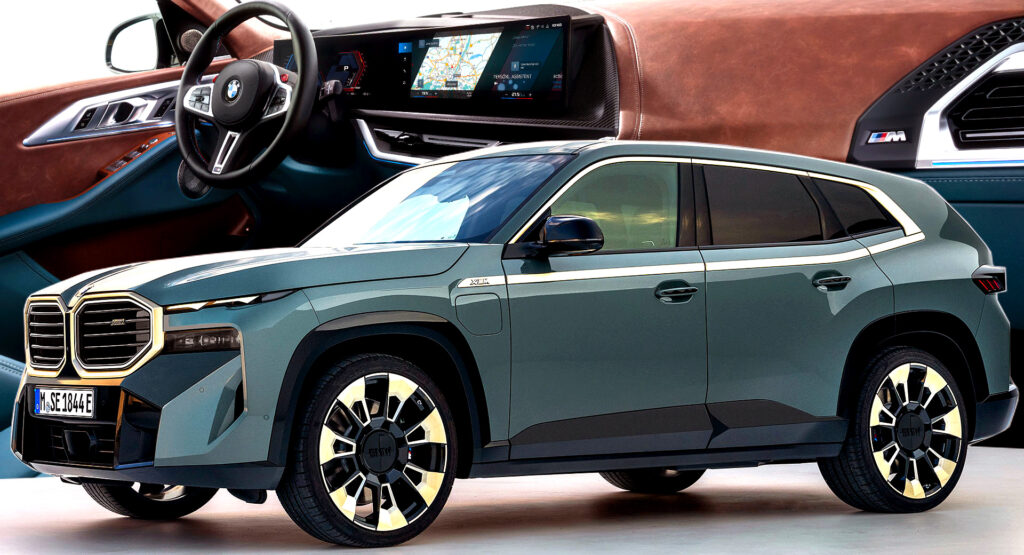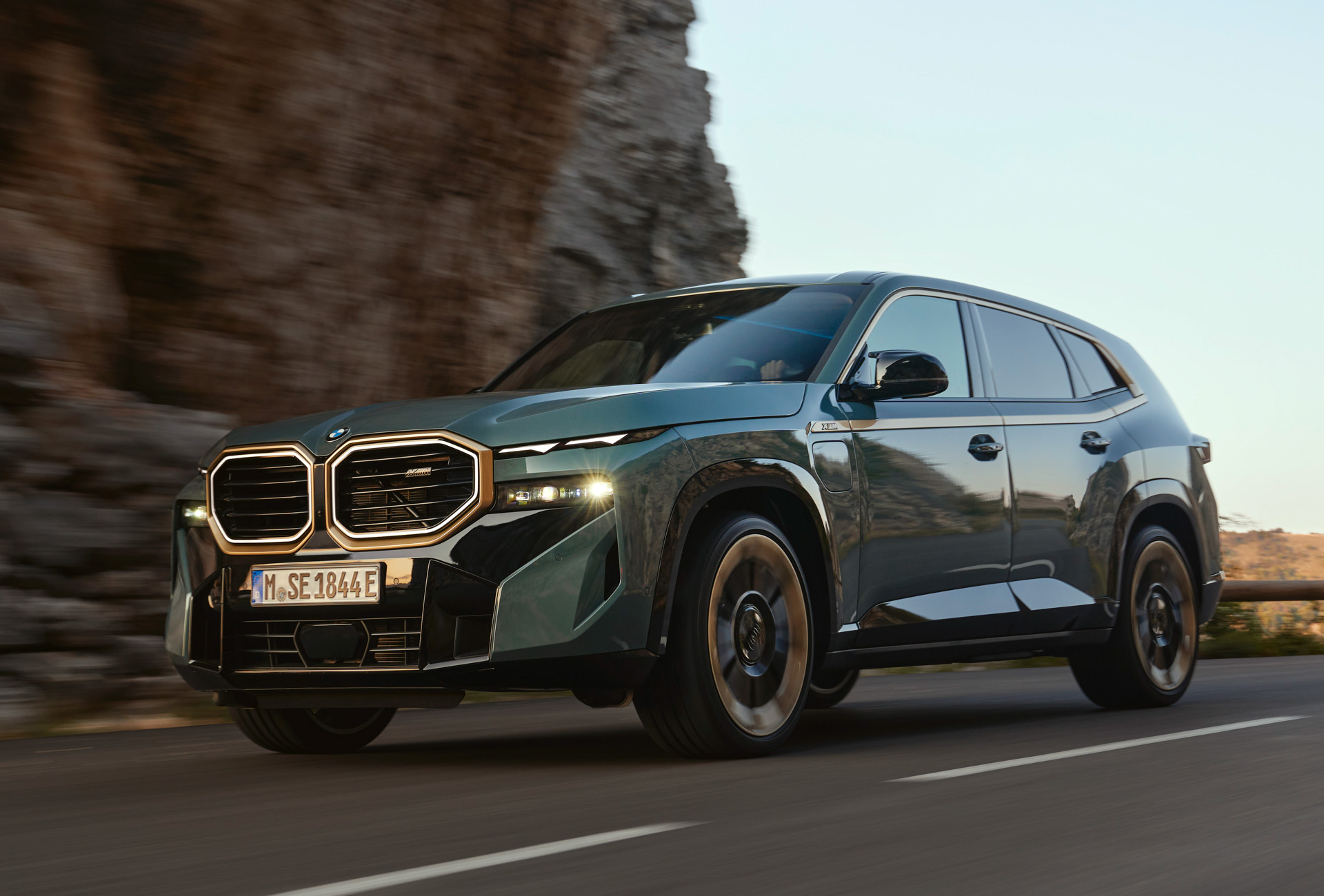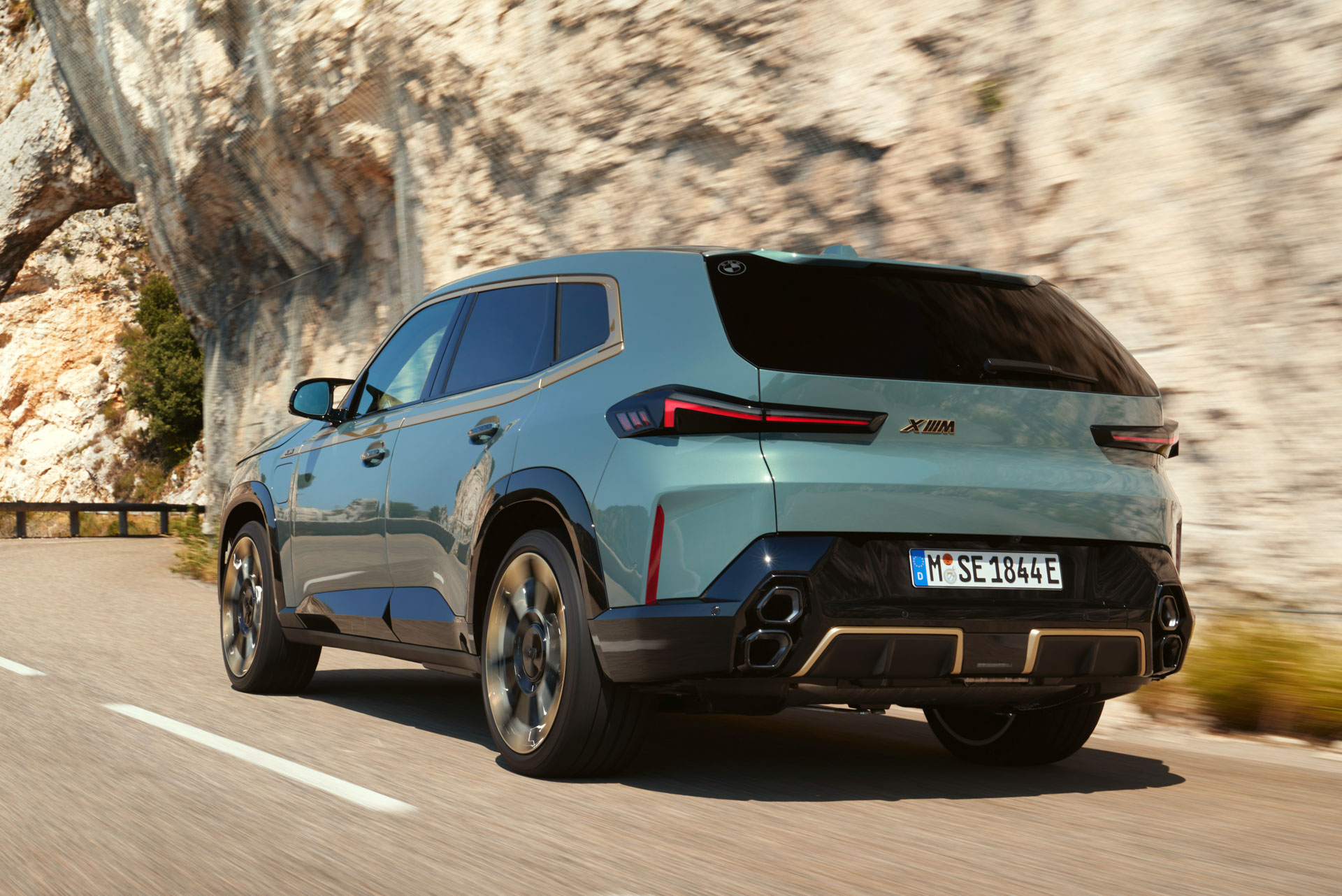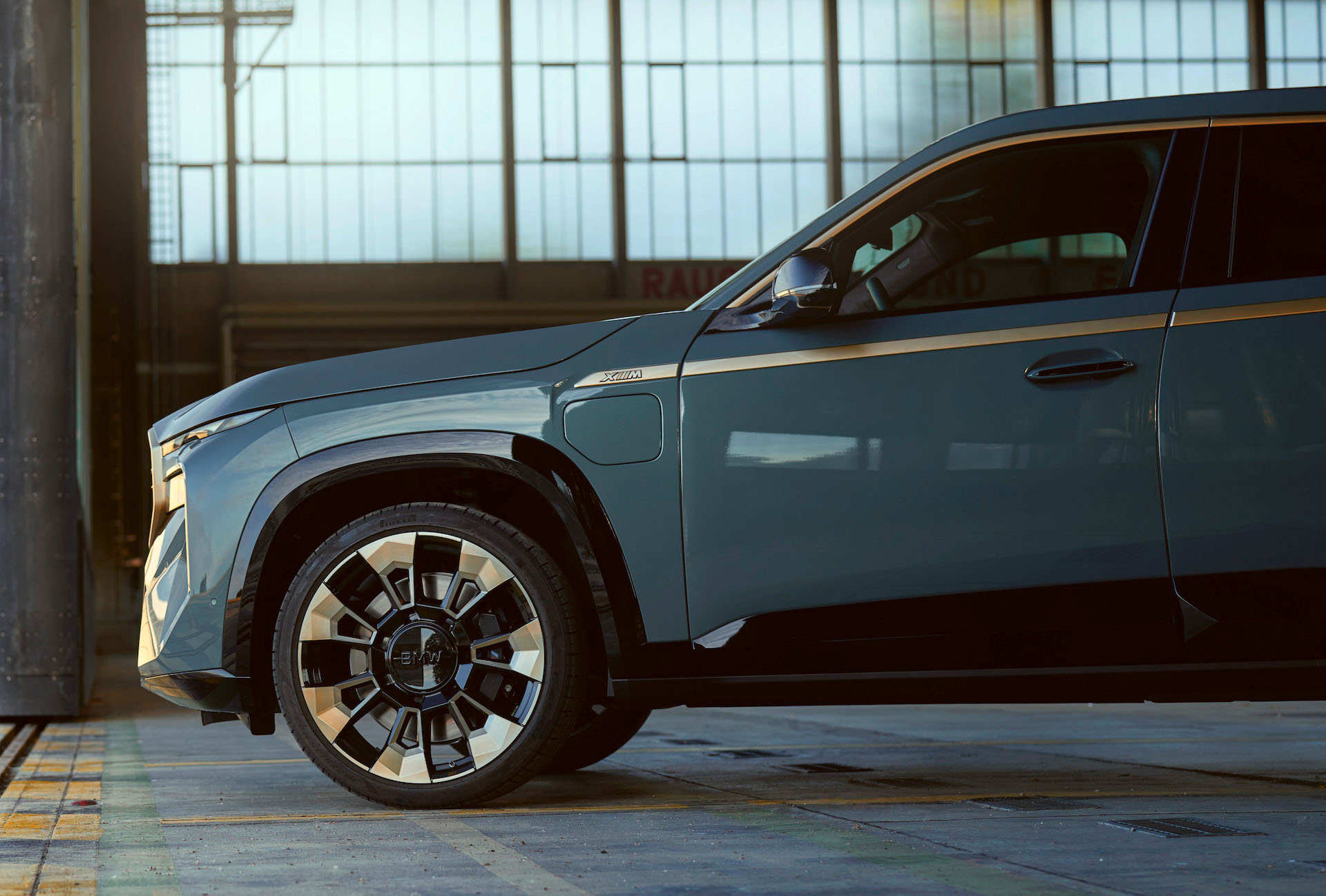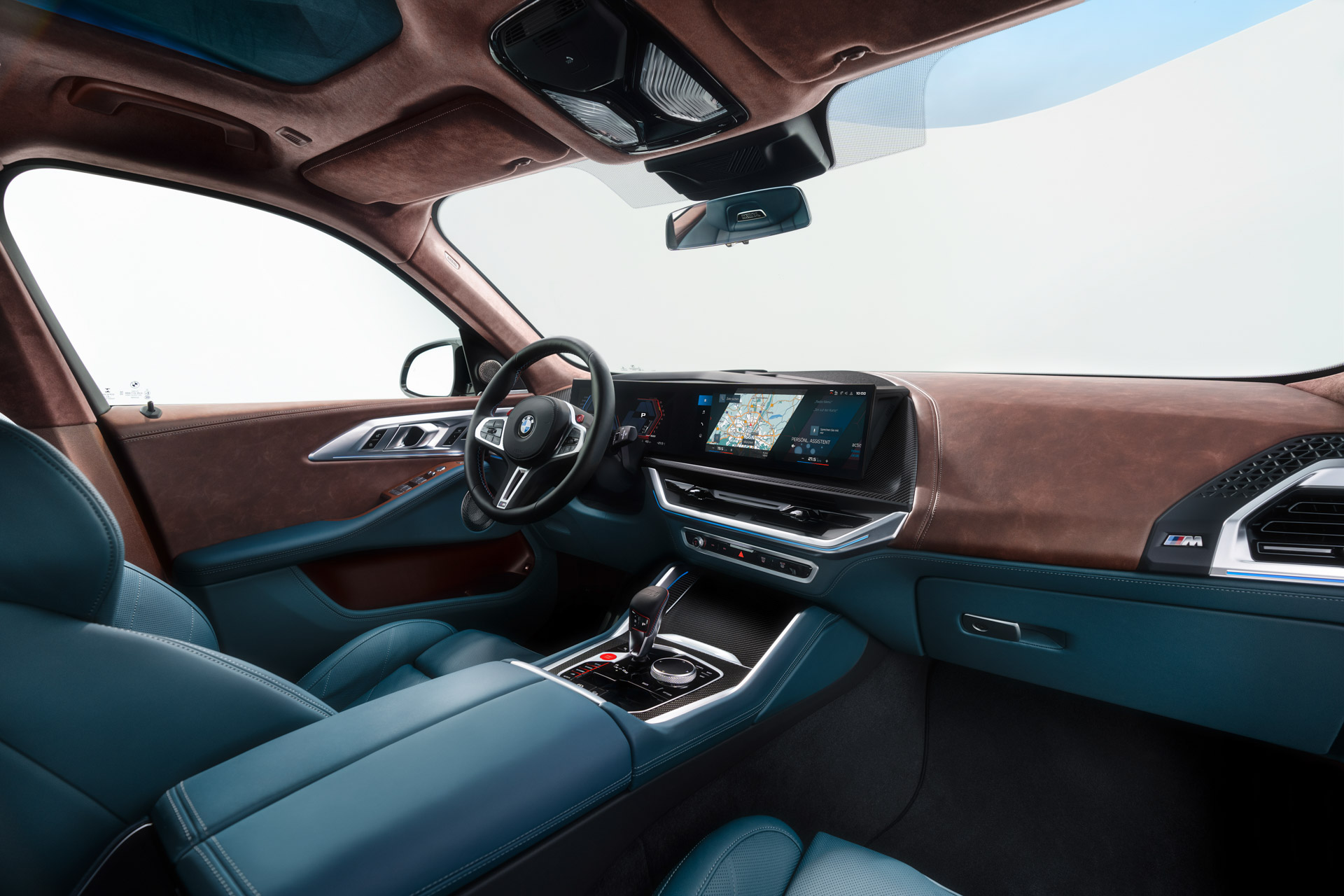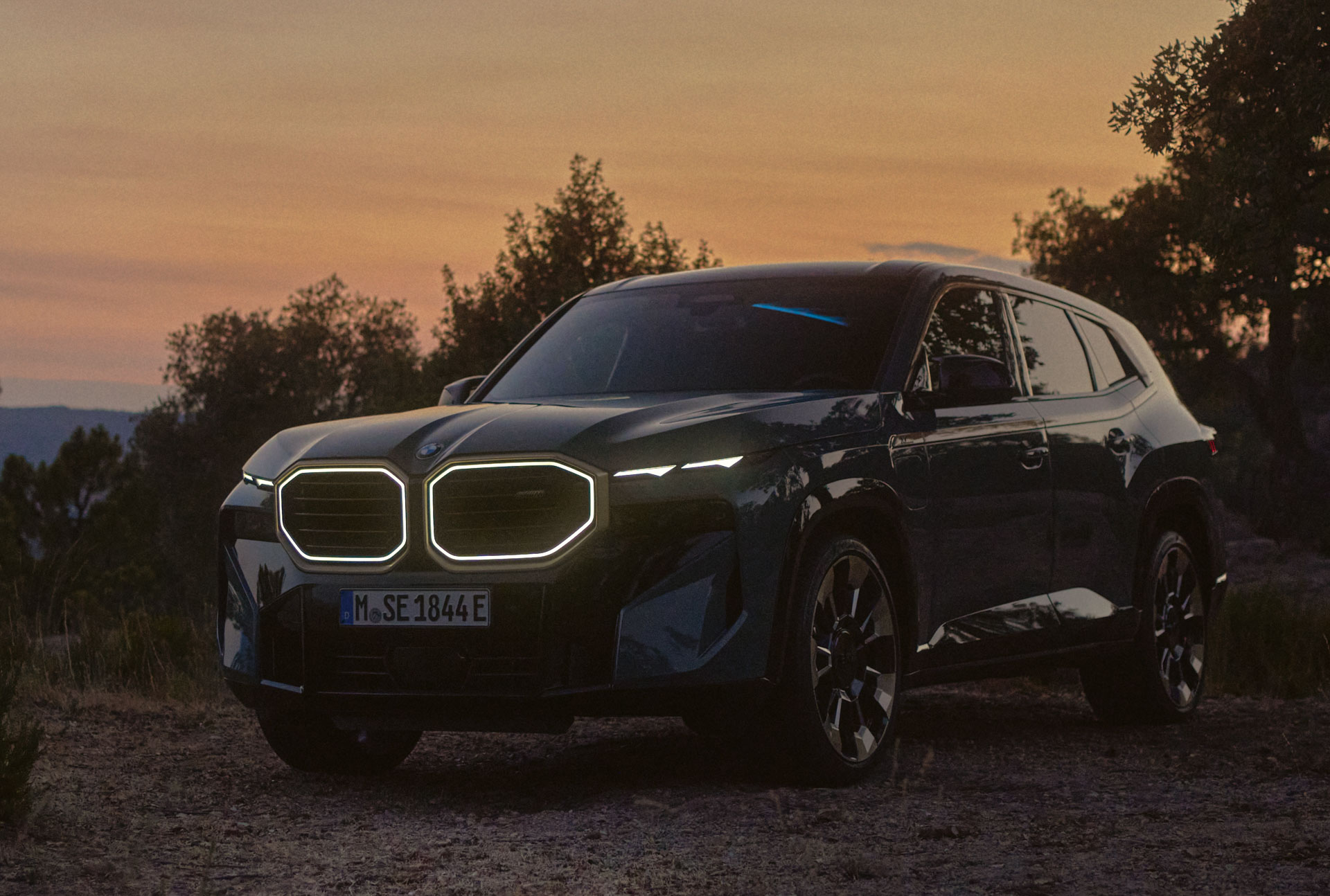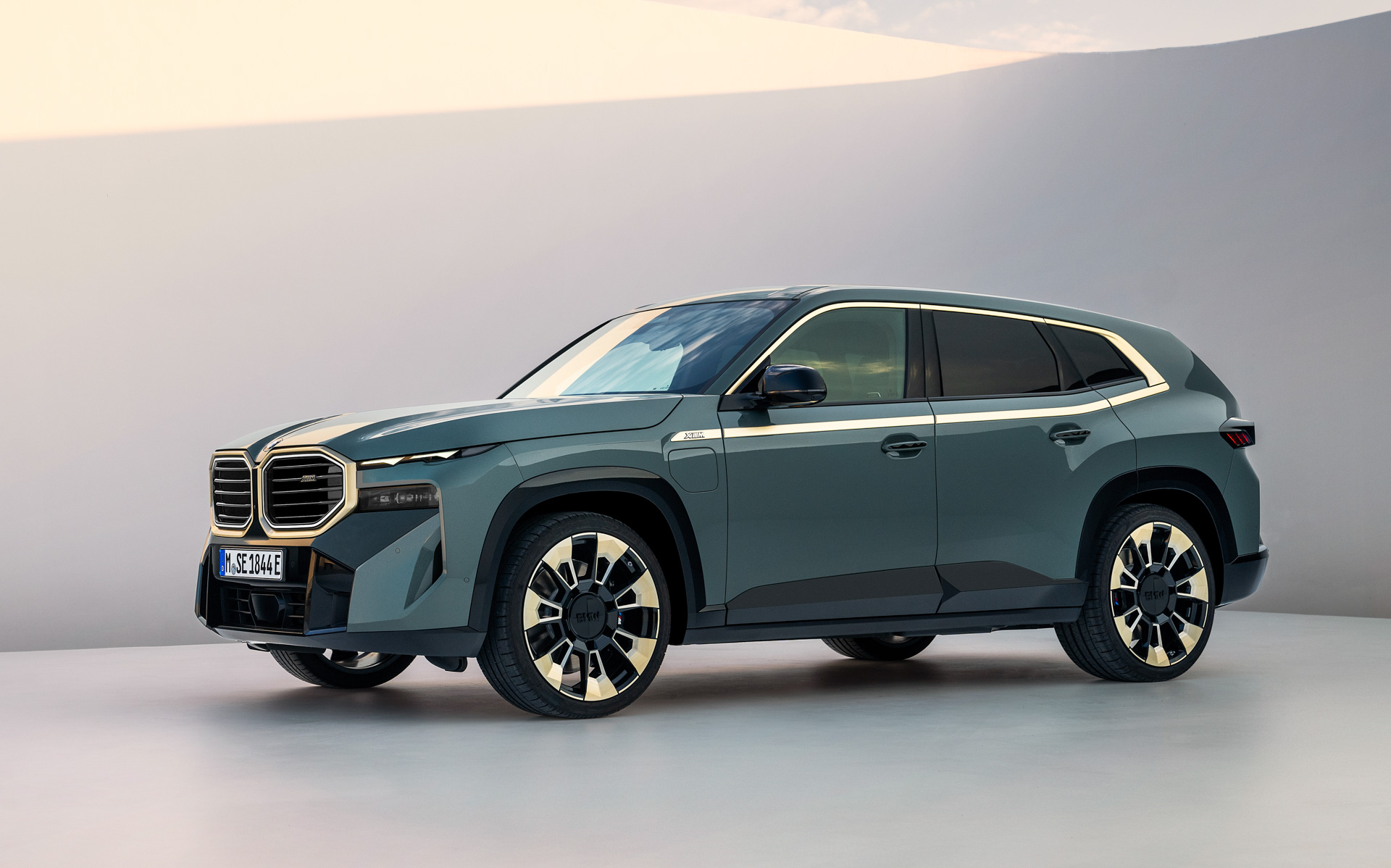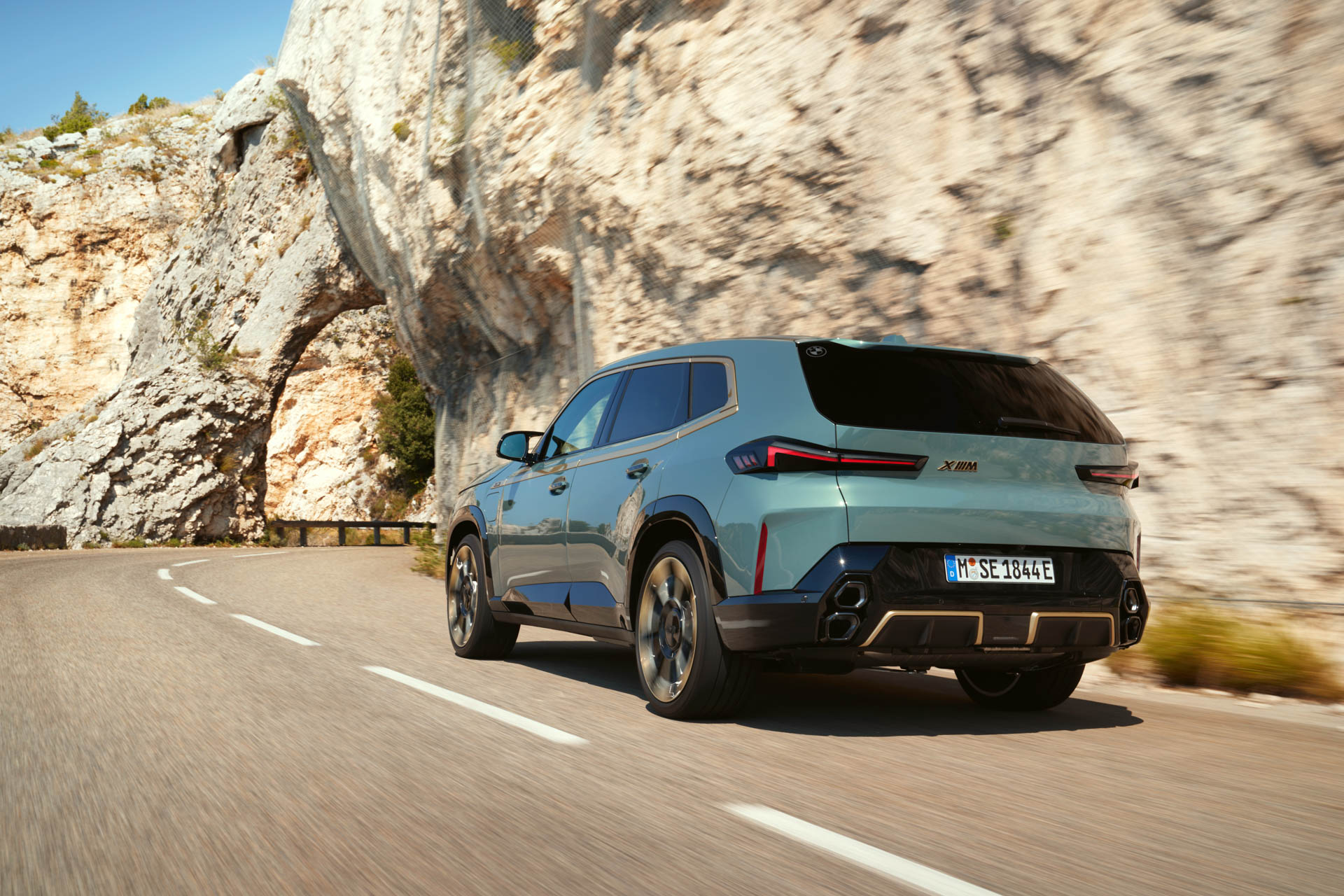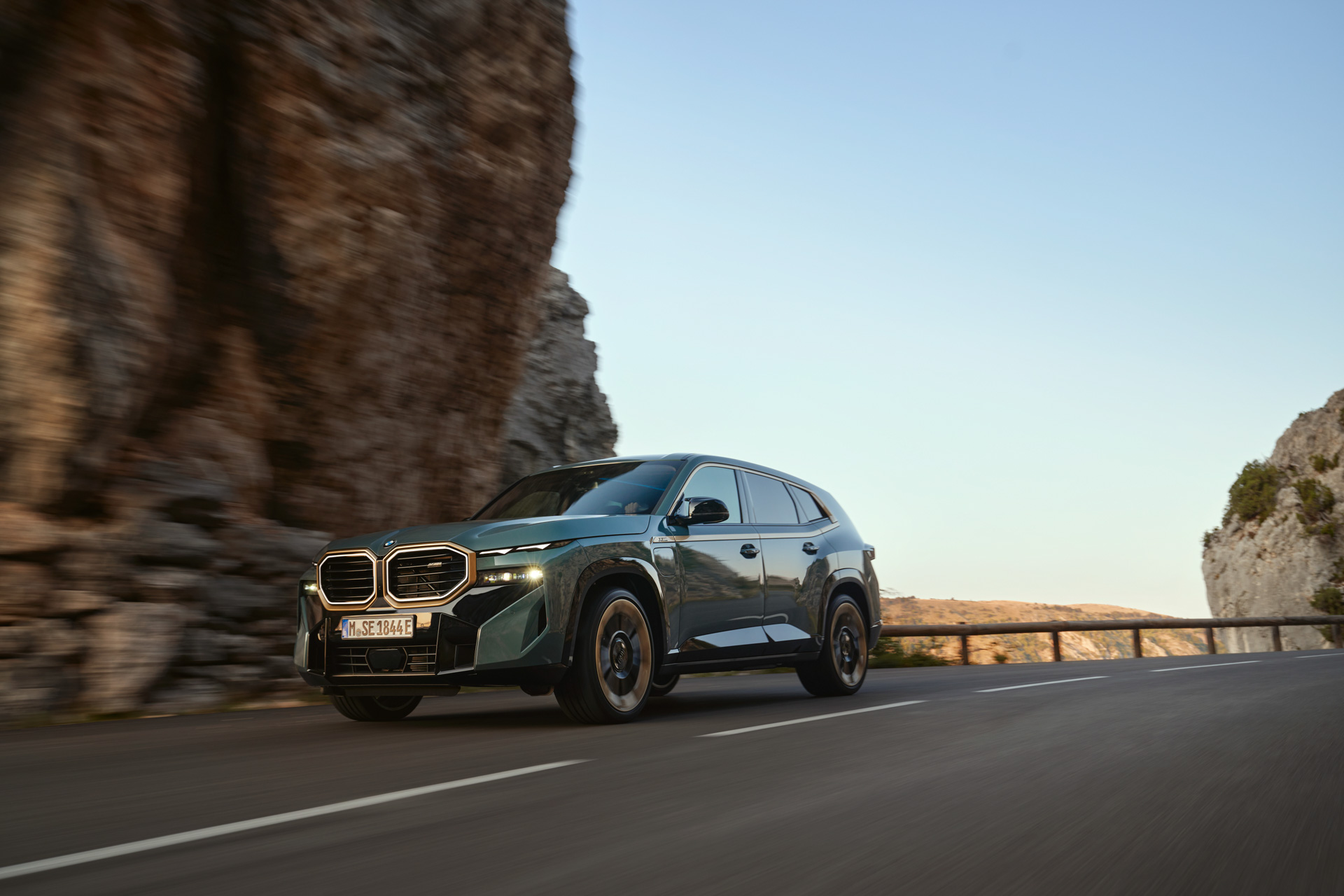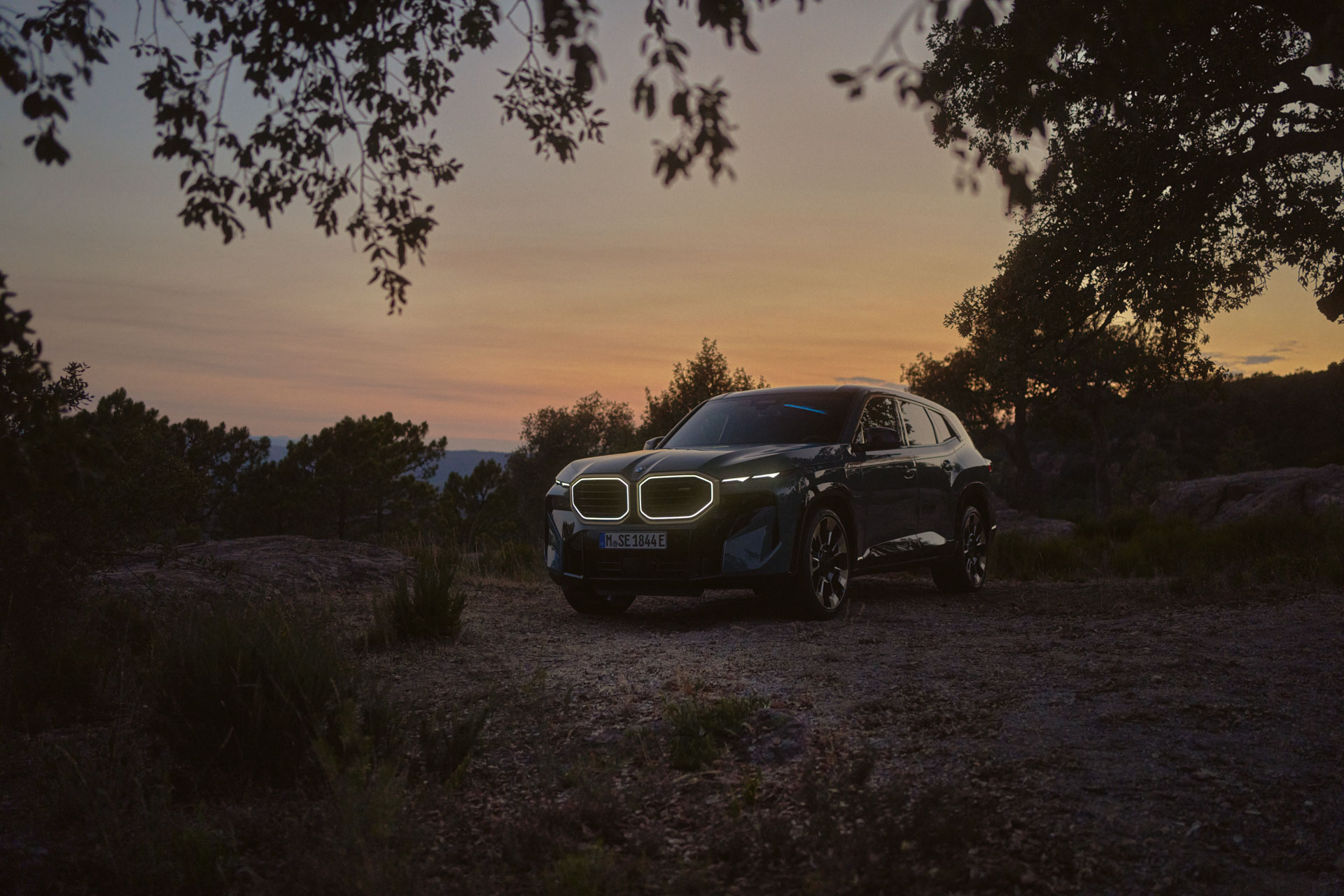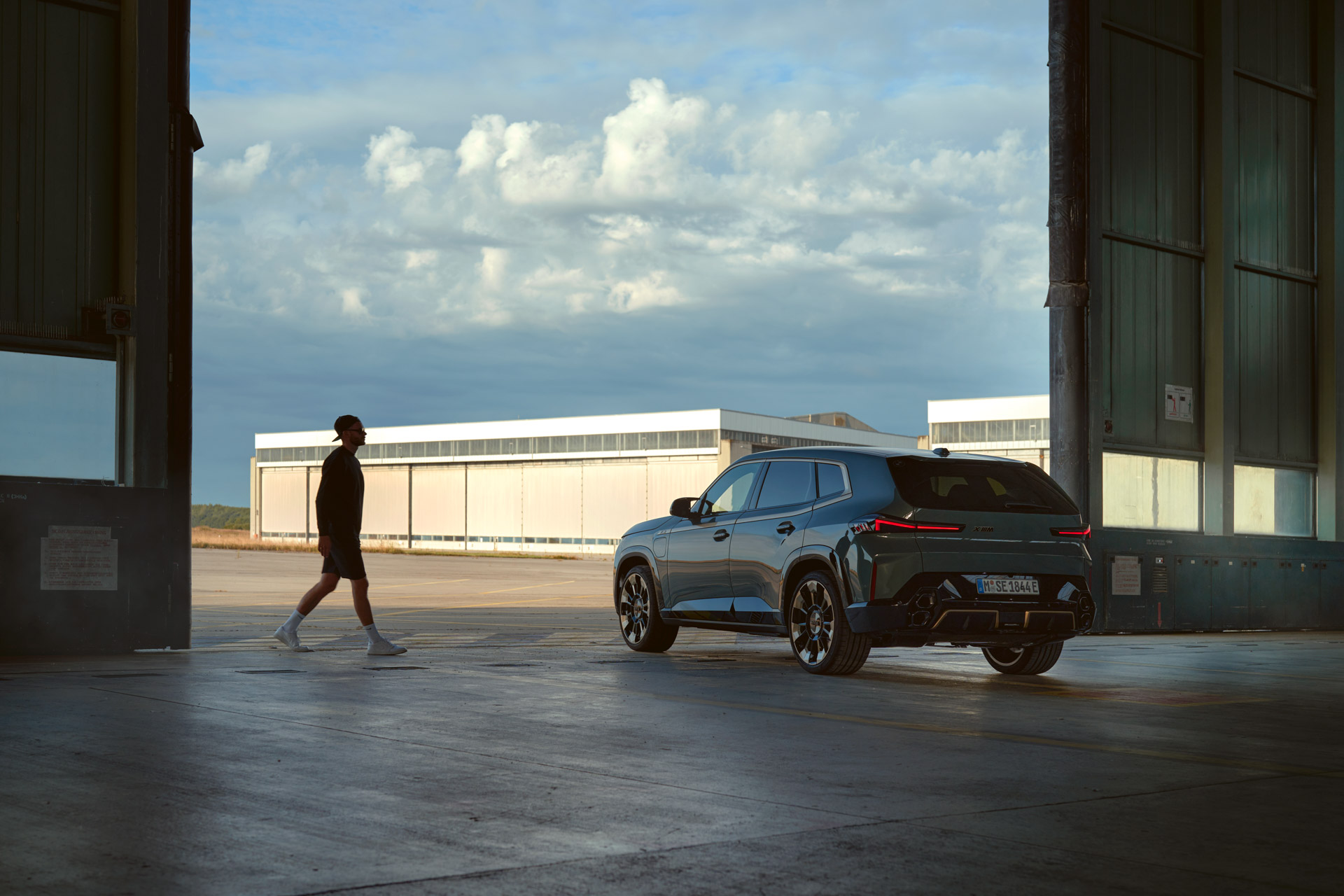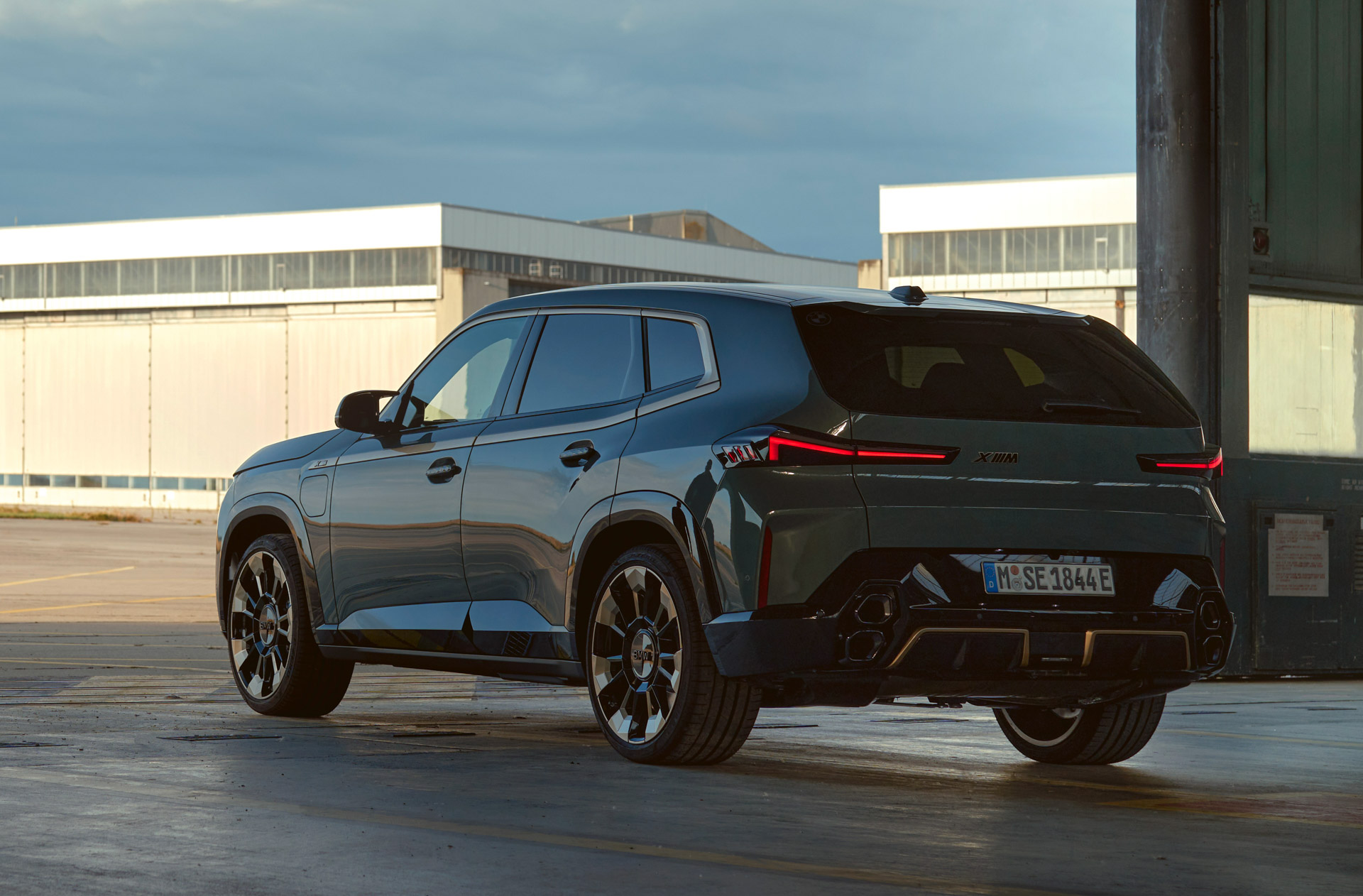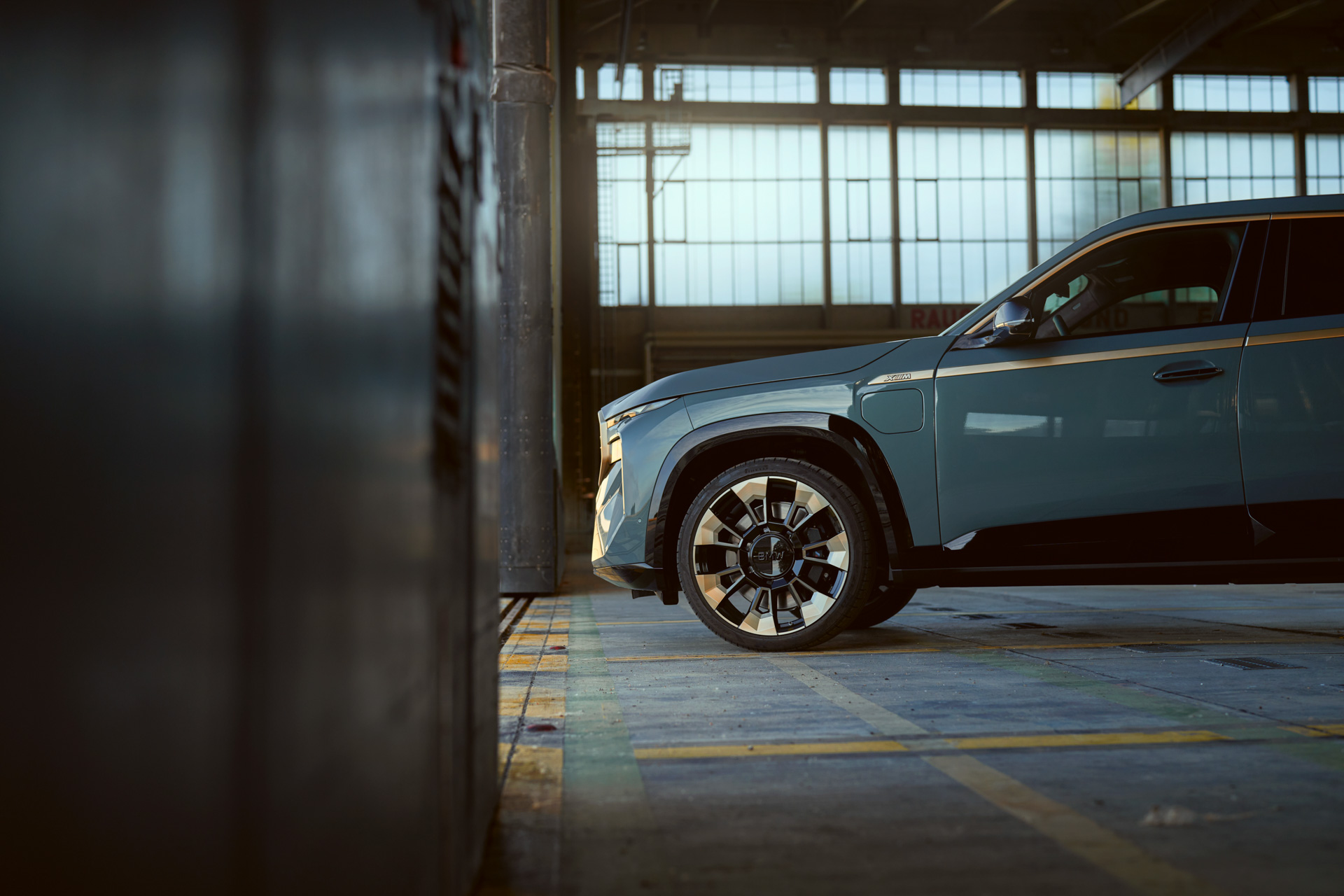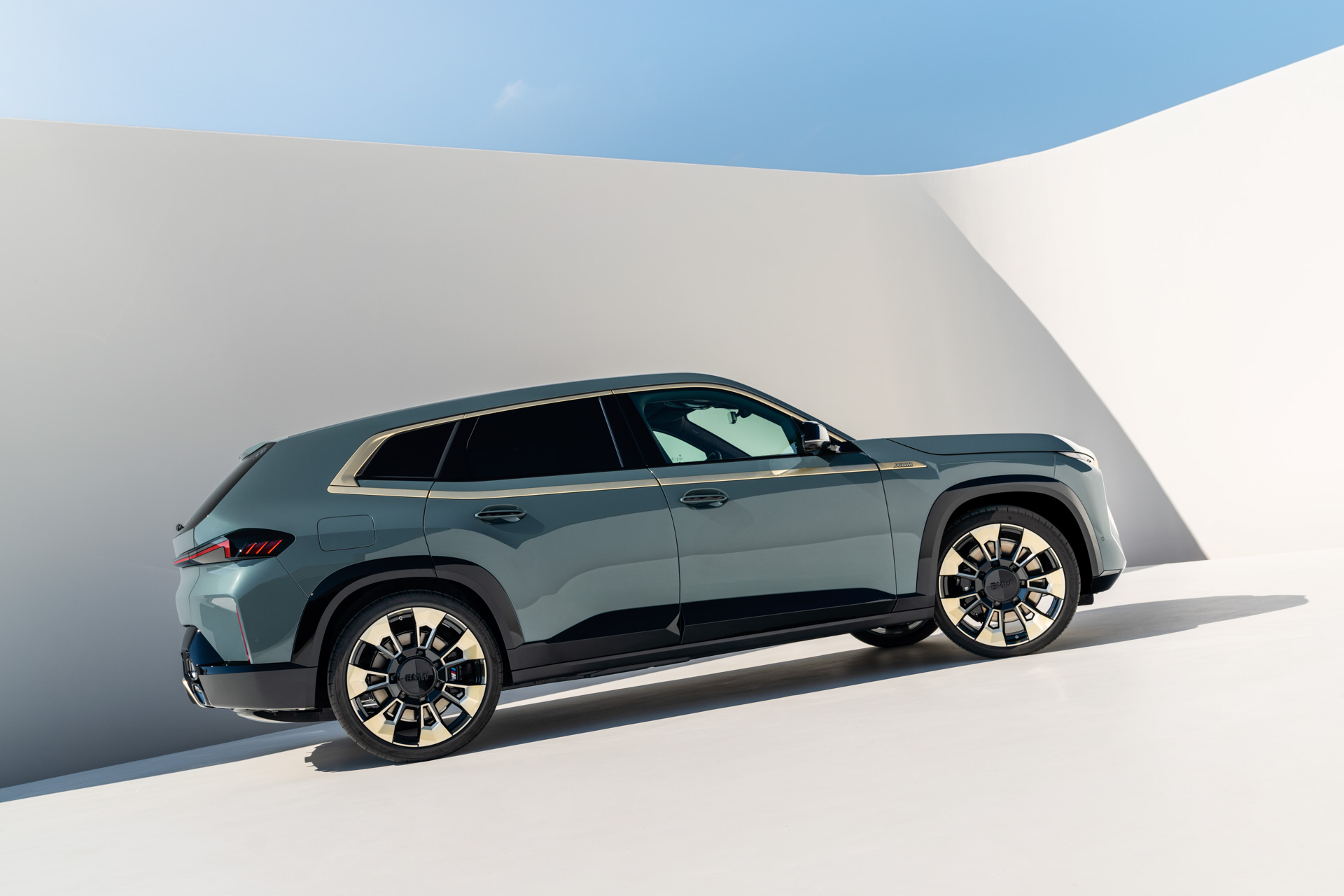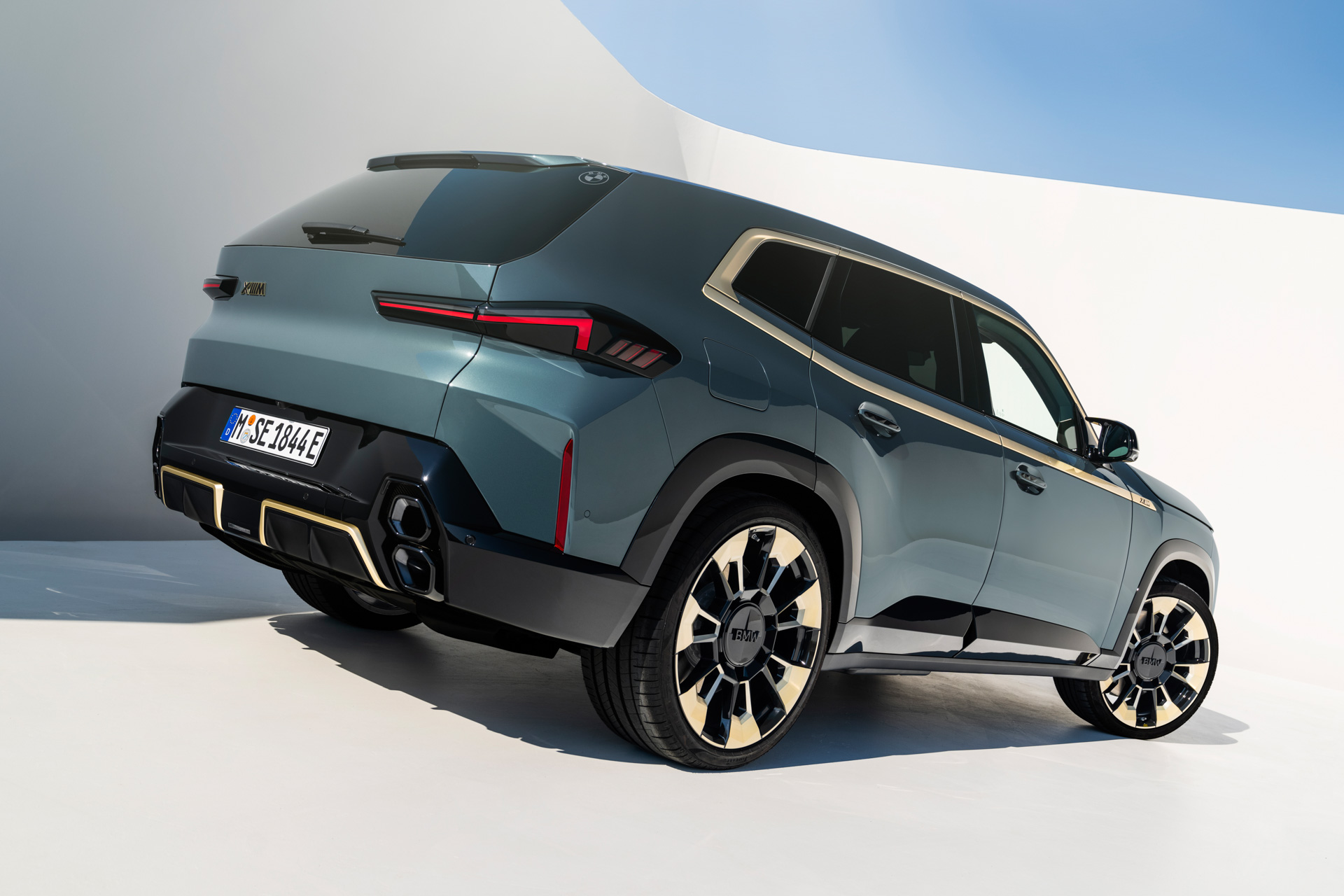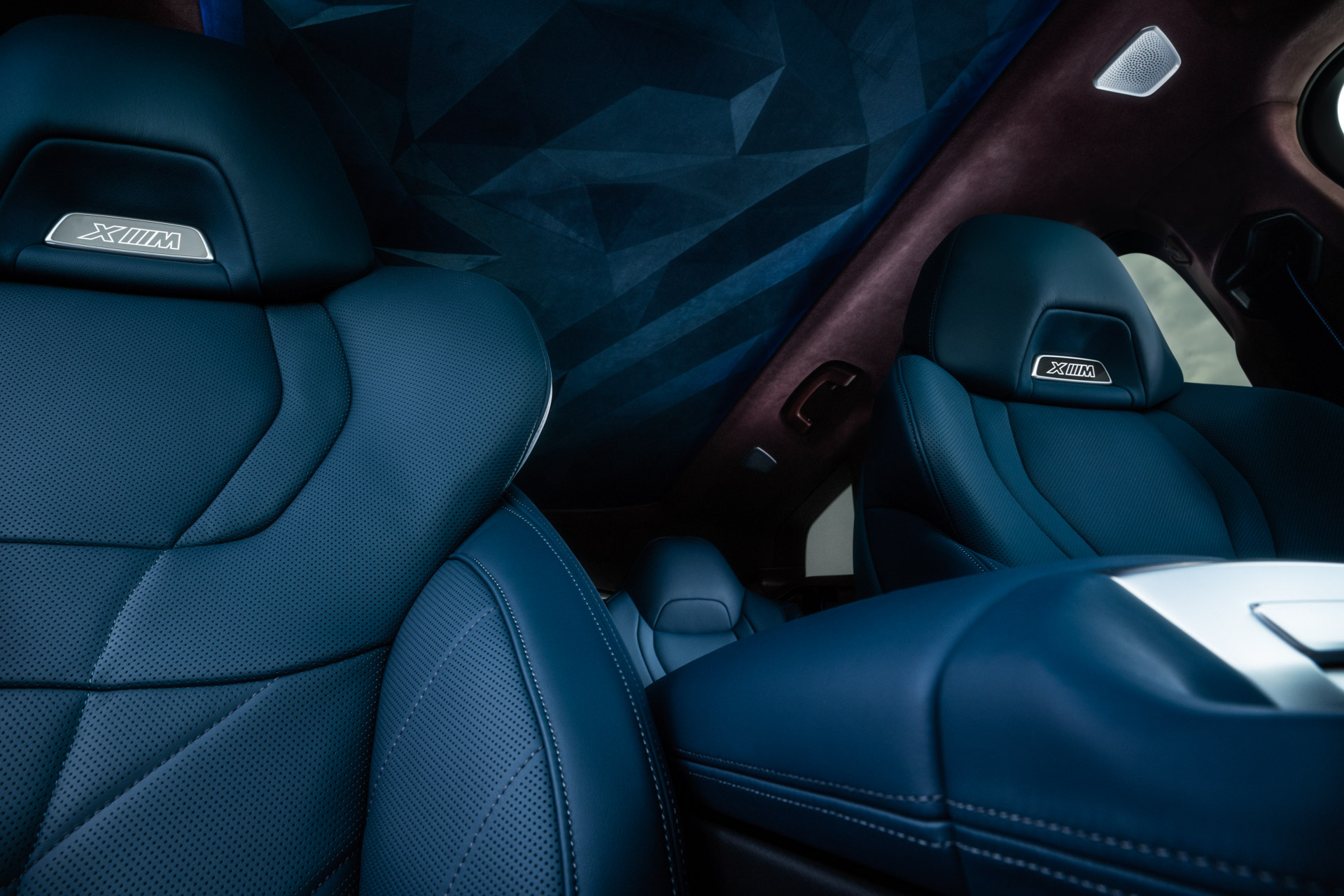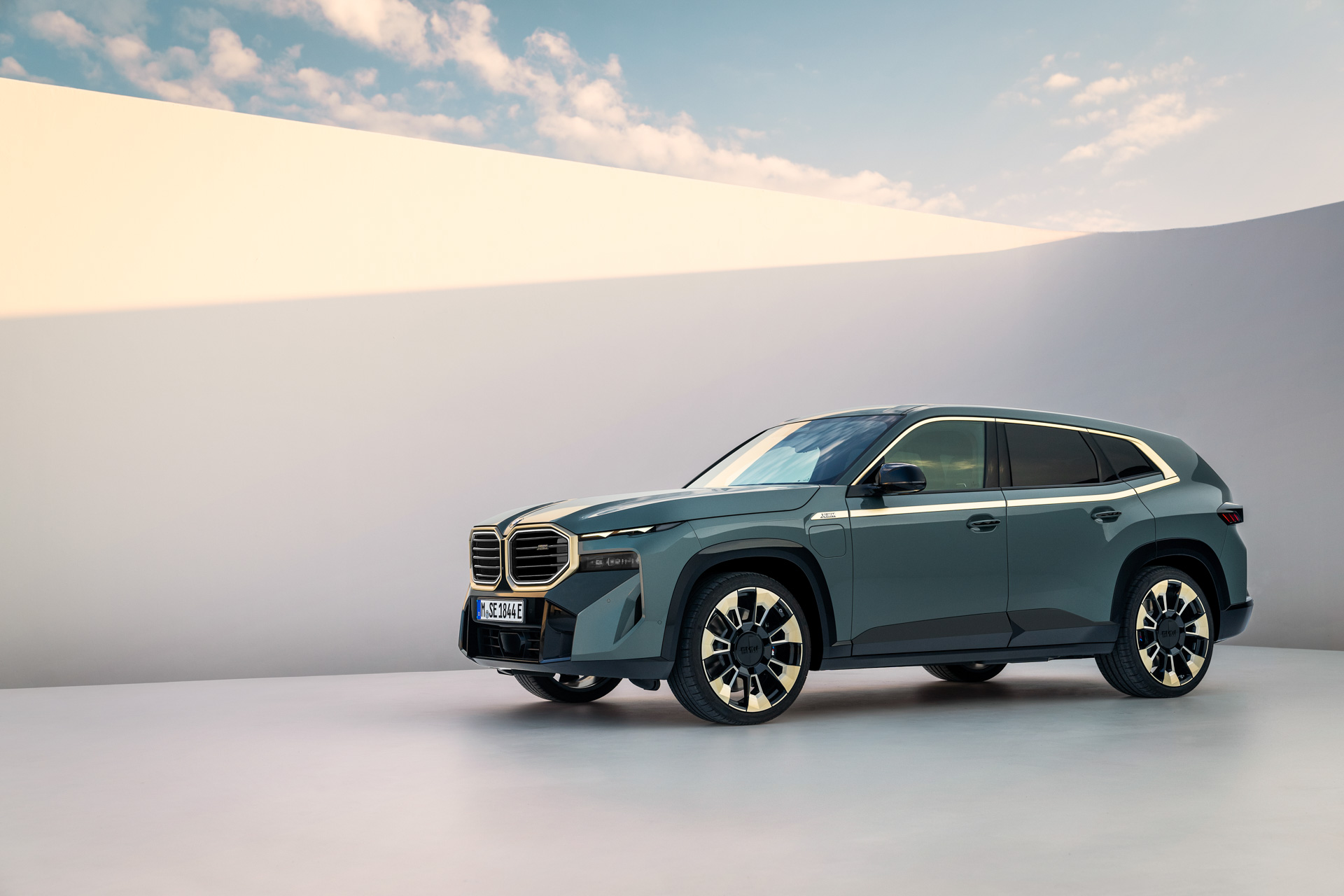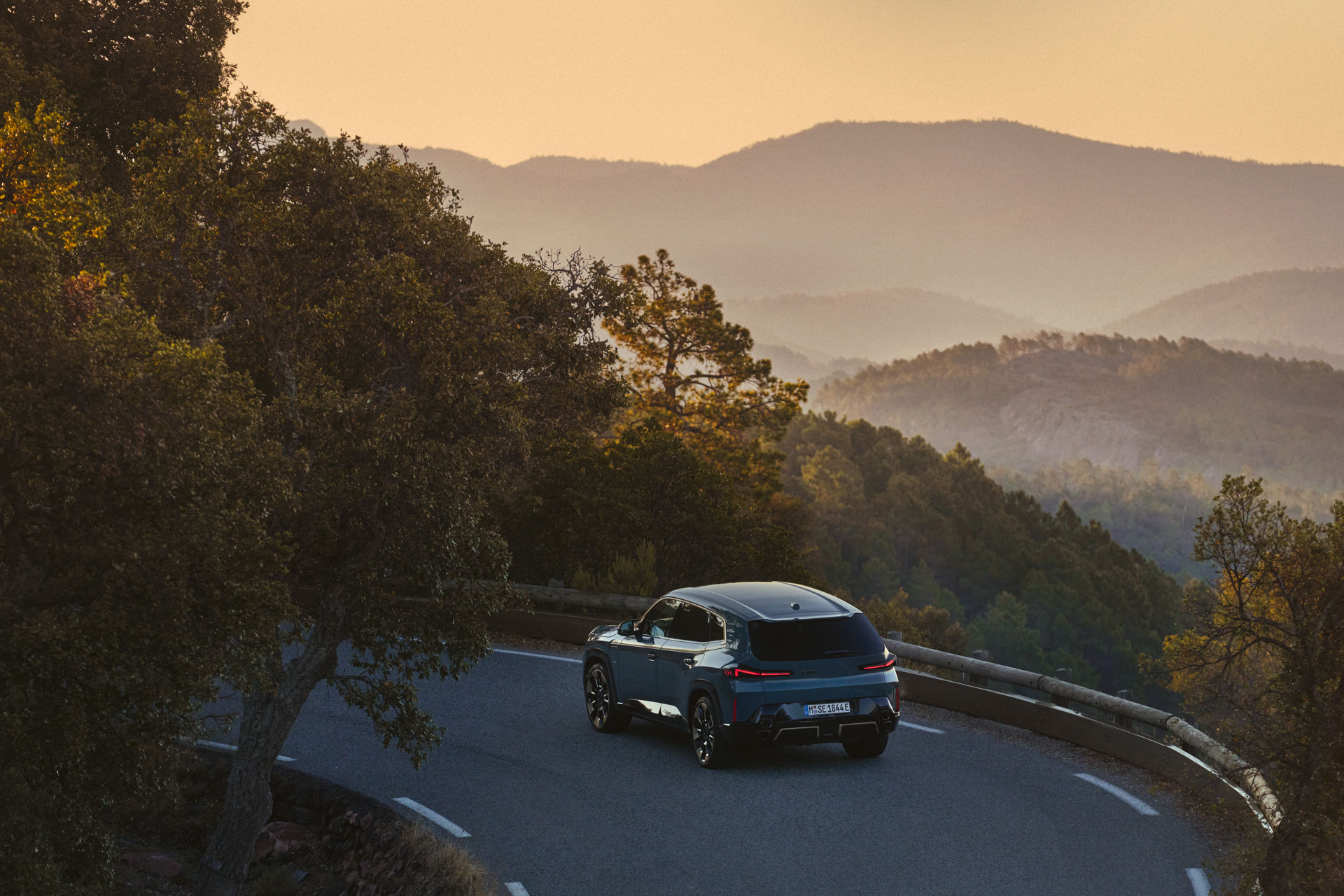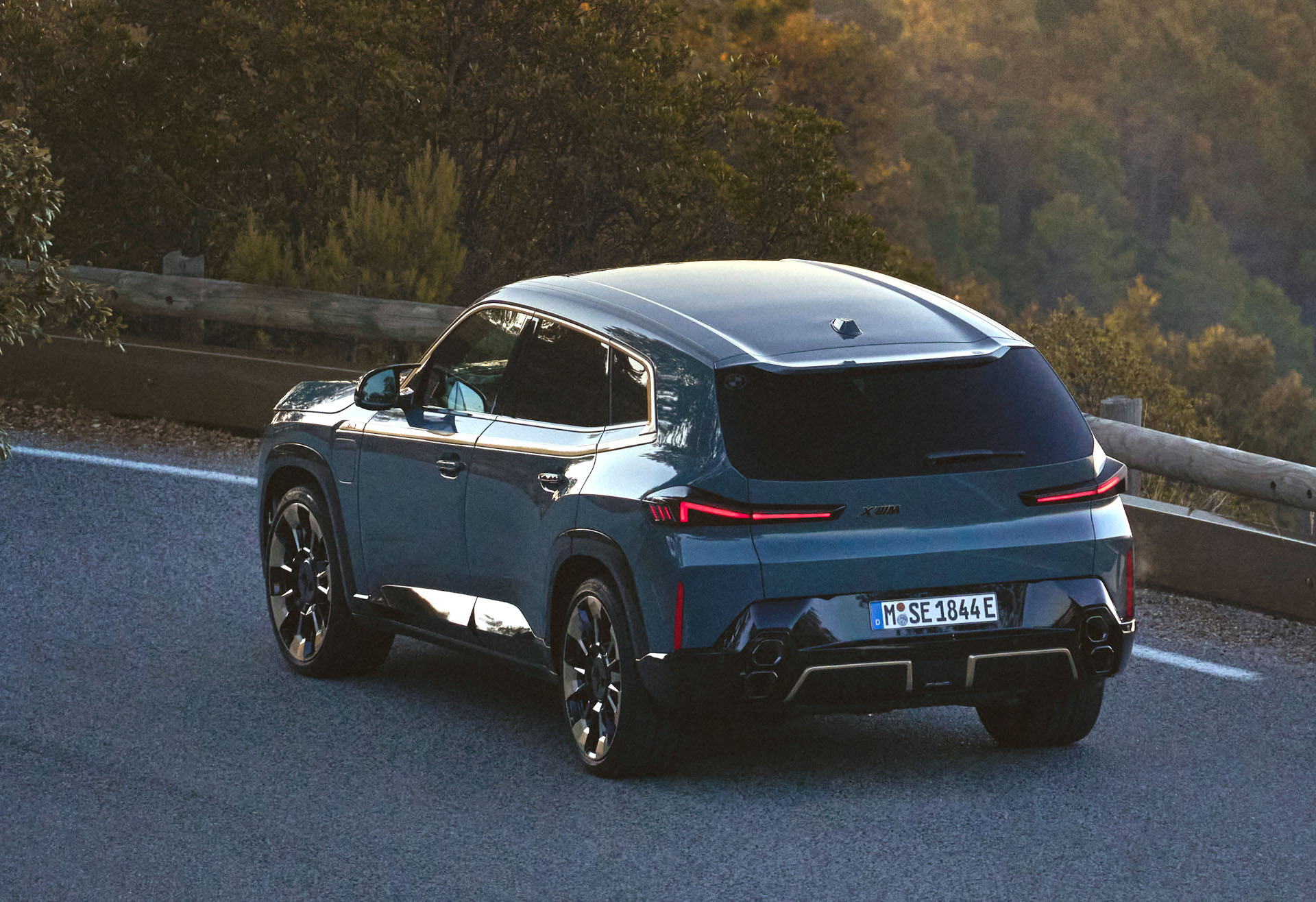We’ve seen the XM concept, we’ve seen the spy shots, we’ve seen the patent drawings, and still the production version of the 2023 BMW XM has the capacity to take your breath away.
The $159,000 (plus $995 destination and handling) super-SUV is the first high performance vehicle from M to feature an electrified drivetrain, BMW says. The wording is important here, because BMW has already revealed fully electric (i4 M50, iX M60, i7 M70) and hybrid (M760e) cars that wear an M badge. But those are M Performance-branded, or M-lite, if you will, vehicles, automotive near-beer to full M models like the M3, M4 and M5. So the XM is the first real BMW Motorsport-department car to get any kind of electrical assistance.
First dedicated M model since the 1970s M1
But more than that, the XM is the first BMW Motorsport product not spun off from a regular BMW model since the mid-engined M1 supercar of the late 1970s. And that makes it a huge deal, not to mention a huge disappointment for some fans that will be dismayed to hear that only the second standalone car from an organisation founded to win races is a 6,000 lbs SUV.
If we’re splitting hairs it’s actually 6,062 lbs (2,750 kg), which makes the XM almost 2.4 times as heavy as an original E30 M3, and is an unfortunate by-product of fusing three heavy-ass automotive components, those being an SUV body, big twin-turbo V8 combustion engine and a hybrid booster pack with a sufficiently big battery (25.7 kWh) to allow the resulting creation to move short distances as an EV at up to 87 mph (140 km/h).
The most powerful BMW M road car yet
Compared to other modern luxury hybrids, the XM’s estimated 30-mile (50 km) range certainly does count as a short distance. But then this is a BMW M car, so power and performance should rightly take priority. And they will next summer when BMW launches an extra-speedy, extra-expensive ($185,000) version of its super-truck called the XM Label Red that will send 735 hp (745 PS) and 735 lb-ft (997 Nm) to the pavement from an engine that will almost certainly form the basis of the powertrain in the next-generation BMW M5. But when production XMs start rolling out of BMW’s Spartanburg, NC, plant late this year, they won’t be quite so well endowed.
Related: 2023 BMW M2 Will Pump Out 453 HP From Twin-Turbo Six According To Dealer Bulletin
The regular XM is powered by a 4.4 liter twin-turbo V8 that on its own makes 483 hp (490 PS) and 479 lb-ft (650 Nm), which it delivers to all four wheels via an eight-speed automatic transmission. But bolted inside that transmission is a single electric motor that can generate 194 hp (197 PS). Mix the two via a wet clutch pack in the transmission and you get 644 hp (653 PS) at 5,400 rpm and 590 lb-ft (800 Nm) on tap between 1,600-5,000 rpm.
Rivals and other M-cars are faster
Those are reasonably chunky numbers and make this the most powerful M road car yet. But they’re not as chunky as the curb weight figure we mentioned earlier. Which is why a machine that is supposed to be a halo car for BMW’s M lineup is actually slower than many any other M-badged cars on sale, including several M-Performance, M-pretender cars. Zero to 60 mph takes 4.1 seconds, which isn’t only slower than the gas-powered X6M that costs $54k less (3.8 seconds), it means the XM is no faster than a $49,900 M240i xDrive coupe.
Hybrid rivals will also kick its butt. Porsche’s $173,800 Cayenne Turbo S E-Hybrid does the job in 3.6 seconds and can reach 183 mph (295 km/h). The XM comes standard with a 155 mph (250 km/h) limiter, and coughing up for the optional M Driver’s Package only raises it to 168 mph (270 km/h). On the the flip-side, while topping up the Porsche’s battery via a 7.4 kW charger takes only 2 hours to the BMW’s 3.25, the Cayenne’s pathetic 15-mile (24 km) EV range makes even the XM look long-legged.
Lots of mass, but evenly distributed
But maybe the stoplight numbers don’t tell the whole story. BMW says that a pre-gearing stage between the electric motor’s rotor and the automatic transmission’s input shaft swells the motor’s real actual 207 lb-ft (281 Nm) output to 332 lb-ft (450 Nm), and makes its presence not only from a standing start, but when passing other cars on the highway. And though the curb weight figure makes for uncomfortable reading, that mass is at least in the right place. BMW says the combination of a long wheelbase, wide track, near-50/50 weight distribution and low center of gravity thanks to the underfloor positioning of the battery pack ensures the XM strikes a decent combination of performance and comfort.
Related: BMW’s 750-HP Concept XM Revealed And It’s Even Scarier Than We Imagined
The XM always operates in all-wheel drive mode but the torque split can biased to the rear when 4WD Sport is engaged, and the M sport differential can shift power to the outside wheel to help turn-in on paved surfaces, or lock itself up completely to power through dunes. Active roll stabilization courtesy of electrically-controlled anti-roll bars is also part of the standard package, and the XM is the first full M car to come equipped with rear-axle steering.
Also standard in the U.S. are giant 23-inch wheels (wrapped in 275 and 315 mm tires front and rear), though buyers can opt to downgrade to 22-inch versions (and BMW’s tech info also mentions tiny 21s, which are practically shirt buttons). Though the biggest wheels add unsprung mass and probably make the ride worse, we can’t imagine many people who don’t live down a farm track going for the small rims. A vehicle this bold needs massive wheels to do justice to a design that’s going to be hugely controversial, but will certainly help the XM stand out from every other big SUV.
The concept’s flush door handles and boomerang rear lights have gone, but BMW has mostly kept very close to the concept’s promise, delivering the massive illuminated grilles, unusual swage line, split-headlights, vertically stacked exhaust tailpipes and laser-engraved roundels on each upper corner of the rear window. And although the taillights aren’t as flamboyant as the boomerang-shaped units fitted to the show car, the diagonal light strips on the the side sections that reference BMW M’s triple-stripe logo are a nice touch.
A luxurious yet somewhat familiar place to sit inside
By the time the awkwardly named Label Red lands next summer buyers will be able to choose from more than 50 BMW Individual paint finishes, and the NightGold Metallic exterior trim option is bound to be a big hit. Tick that box and the kidney grilles’ borders, the diffuser surrounds and the body’s belt line are all picked out in gold, BMW offering a further option to coat the 23-inch wheels in the same stuff.
Inside, it’s a mix of new and familiar: less wild than the iX, and definitely more luxurious than any of BMW’s plain gas-powered SUVs. The basic dashboard display and console layout isn’t much different to what you’ll find in recently introduced or facelifted BMWs like the X7, and features the company’s new iDrive 8 operating system tucked inside combined digital gauge pack and touchscreen. But unlike the X7, the XM still has a conventional automatic gearshifter.
The Concept XM’s sculptural headliner is standard, and another carryover from the show car is the optional Vintage Coffee Merino leather for the door panels and upper dashboard, which is designed to celebrate leather’s natural qualities by showing, rather than hiding, creases and scars. Which is funny, because we thought it was all about vegan leather these days, especially in electrified cars. Seats, meanwhile, are either Silverstone or Deep Lagoon, and there are only four of them.
Related: New BMW M760e And i7 M70 xDrive Performance Models Coming In 2023 With Up To 600 HP
That’s right, despite measuring the same 122-inches (3.1 m) between axles as an X7 M60i, and packing an extra 167 lbs of girth, the XM carries three fewer passengers. Yet it costs almost $60,000 more. It’s not only the XM’s styling that’s controversial. Everything about it is guaranteed to incite forum riots.
Are you a fan of the 2023 BMW XM? Is it fast enough and special enough to justify being BMW’s first standalone M product in over 40 years? Leave a comment below and let us know what you really think.




